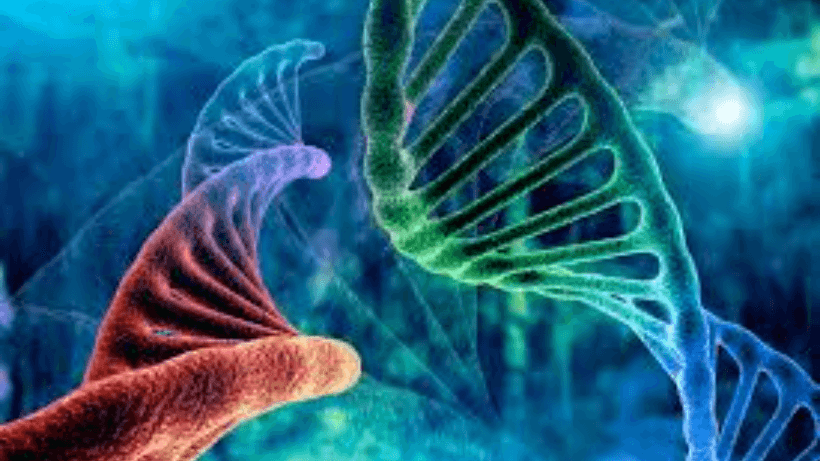
Early Signs of Cancer: A Simplified Guide
01 Nov, 2023
 Healthtrip Team
Healthtrip TeamCancer is a term that encompasses a myriad of diseases, all of which share a common trait: the unchecked and rampant proliferation of abnormal cells within the body. As these cells grow and divide, they can invade nearby tissues and spread to other parts of the body, a process known as metastasis. The onset and progression of cancer can be subtle, making early detection vital. Recognizing the initial symptoms can pave the way for timely intervention, which often leads to more effective treatments and improved prognoses.
Most popular procedures in India
1. Unexplained Weight Loss:
- The Phenomenon: An inexplicable reduction in weight, often exceeding 10 pounds, that occurs without a change in diet or physical activity level.
- Underlying Mechanisms: Cancer cells consume substantial amounts of the body's energy, often leading to weight depletion. Some cancers can also secrete substances that cause a decrease in appetite.
- Common Associations: This symptom is frequently associated with cancers of the digestive system, such as stomach and pancreatic cancer, where tumors may impede the body’s ability to digest food and absorb nutrients, leading to significant weight loss.
2. Fatigue:
- Manifestation: A profound and intractable form of tiredness that rest does not relieve, potentially debilitating.
- Cancer's Role: Fatigue in cancer patients can be a direct result of the cancer's metabolic demands or an indirect effect, such as cancer-related anemia, which diminishes oxygen delivery to tissues, exacerbating feelings of exhaustion.
- Clinical Implications: Fatigue often becomes more severe as the cancer progresses or when it has metastasized, which can be a critical indication of the disease’s advancement.
Wellness Treatments
Give yourself the time to relax
Lowest Prices Guaranteed!

Lowest Prices Guaranteed!
3. Pain:
- The Symptom: Pain can be a persistent and often severe symptom, possibly escalating as the cancer develops.
- Significance in Diagnosis: While pain is more commonly associated with advanced cancer, it may be an early symptom in some cases, such as with testicular or bone cancers.
- Mechanisms of Pain: Pain can result from the cancer compressing or infiltrating into nerves or other structures, or from the release of chemicals by the cancer that produce pain.
4. Skin Changes:
- Visual Changes: These can include darkening (hyperpigmentation), yellowing (jaundice), reddening (erythema), itching, or excessive hair growth.
- Indicative Signs: Jaundice is commonly associated with liver cancer or cancer that has metastasized to the liver. Changes such as darkening or redness can occur with some skin cancers or cancers that metastasize to the skin.
- Treatment-Related Reactions: Some skin changes might also arise as reactions to cancer treatments.
5. Changes in Bowel or Bladder Habits:
- Specific Alterations: Long-term constipation, diarrhea, or a change in the size of the stool can be indicative of colon cancer.
- Bladder Function: Changes in bladder function including increased frequency, urgency, or the presence of blood in the urine can signal bladder or prostate cancer.
- Internal Pressure: Tumors in the vicinity of the bladder can exert pressure, leading to these changes, or they can cause internal bleeding which manifests in the stool or urine.
6. Difficulty Swallowing or Persistent Indigestion:
- The Discomfort: This might present as a persistent indigestion sensation or difficulty swallowing, suggesting a possible blockage or irritation.
- Esophageal Cancer: For instance, tumors in the esophagus can lead to narrowing, making swallowing difficult and painful, often a sign of esophageal cancer.
- General Implications: Chronic indigestion or difficulty swallowing can also be indicative of stomach or throat cancers and should not be dismissed.
7. Persistent Cough or Hoarseness:
- Respiratory Symptoms: A cough that does not resolve over time or hoarseness in the voice may be a red flag.
- Lung Cancer Indicators: Coughing up blood can be a symptom of lung cancer, while hoarseness can suggest cancer affecting the larynx.
- Medical Evaluation: Such symptoms warrant immediate investigation, particularly in individuals who smoke or have a history of smoking.
8. Non-healing Sores:
- The Concern: Sores that do not heal on the skin or in the mouth can be an early indication of cancer, particularly skin cancer or oral cancer in individuals who use tobacco or are exposed to HPV.
- Oncologic Implications: Persistent sores can be a sign of a localized cancer that is causing damage to surrounding tissues, preventing normal healing processes.
9. Unusual Bleeding or Discharge:
- Unexpected Symptoms: This includes blood in the stool or urine, or a bloody discharge, which can be a symptom of colon, bladder, or kidney cancer.
- Critical Observations: Similarly, abnormal vaginal bleeding can indicate cervical or endometrial cancer, and blood in the sputum may suggest lung cancer.
10. Lump or Thickening in the Breast or Elsewhere:
- Physical Manifestations: A lump in the breast or other parts of the body that persists may be a sign of cancer.
- Breast Cancer Presentation: Breast cancer is often detected by the presence of a new lump or mass in breast tissue that feels different from surrounding tissue.
11. Recent Changes to Warts or Moles:
- Visual Indicators: Warts, moles, or freckles that change in color, size, or texture could be early signs of skin cancer, particularly melanoma.
- The ABCDE Rule: Asymmetry, Border irregularity, Color changes, Diameter over 6mm, and Evolution of the mole are signs to watch for.
12. Persistent and Unexplained Fevers or Night Sweats:
- Systemic Signs: Fever that recurs or persists without any apparent cause, particularly at night, can be an early indicator of cancer, often associated with blood cancers like leukemia or lymphoma.
- Body's Response: These symptoms may occur because the cancer impacts the body's immune system and can be one of the first signs of an issue.
In Conclusion: It's crucial to be aware of these symptoms and maintain regular health check-ups. Early detection remains one of the most potent tools in combating cancer effectively. If any of these symptoms arise and persist, seeking medical consultation is imperative. Not all symptoms will indicate cancer, but it's always better to be safe and informed.
Related Blogs

Top 5 Oncologists in Krefeld
Find expert oncology specialists in Krefeld, Germany recommended by HealthTrip.

Top 5 Oncologists in Krefeld
Find expert oncology specialists in Krefeld, Germany recommended by HealthTrip.

Top 10 Oncology Hospitals in Krefeld
Discover the leading oncology hospitals in Krefeld, Germany with HealthTrip.

Top 5 Oncologists in Berlin
Find expert oncology specialists in Berlin, Germany recommended by HealthTrip.

Top 10 Oncology Hospitals in Berlin
Discover the leading oncology hospitals in Berlin, Germany with HealthTrip.

Top 5 Oncologists in Schwerin
Find expert oncology specialists in Schwerin, Germany recommended by HealthTrip.










